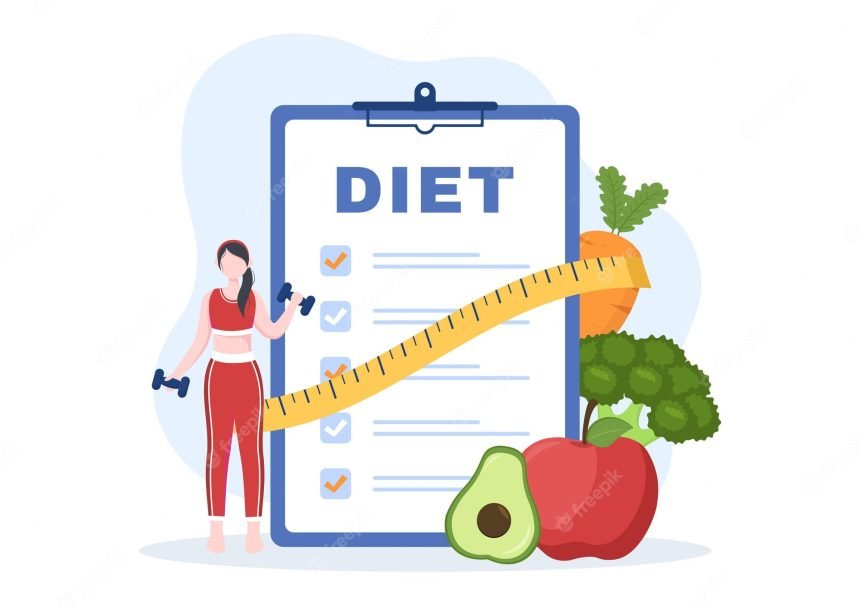
Introduction
Living with idiopathic hypersomnia can be challenging, as individuals often experience excessive daytime sleepiness, difficulty waking up, and feeling unrefreshed even after a full night’s rest. While there is no cure for idiopathic hypersomnia, adopting a well-balanced and nutritious diet can play a significant role in managing its symptoms and improving overall well-being. In this article, we will explore the relationship between diet and idiopathic hypersomnia, providing valuable insights into making dietary choices that can help individuals with this condition find more energy and balance in their daily lives.
Understanding Idiopathic Hypersomnia
What is Idiopathic Hypersomnia?
Idiopathic hypersomnia is a neurological disorder characterized by excessive daytime sleepiness that is not attributed to any other underlying medical condition. Unlike narcolepsy, individuals with idiopathic hypersomnia do not experience sudden and uncontrollable sleep attacks. However, they may struggle to stay awake during the day and often feel the need to nap frequently.
Symptoms and Diagnosis
The primary symptom of idiopathic hypersomnia is persistent daytime sleepiness, which can significantly impact daily activities, work, and social life. Other symptoms may include prolonged nighttime sleep, difficulty waking up, and cognitive impairment. Diagnosing idiopathic hypersomnia involves ruling out other sleep disorders and conducting sleep studies to evaluate sleep patterns.
Prevalence and Impact
Idiopathic hypersomnia is a rare condition, and its prevalence is not well-defined. However, it is believed to affect both men and women equally. The excessive sleepiness associated with idiopathic hypersomnia can lead to reduced productivity, increased risk of accidents, and a diminished quality of life.
The Role of Diet in Managing Idiopathic Hypersomnia
Importance of Nutrition
Maintaining a balanced and nutritious diet is crucial for overall health, and it becomes even more essential for individuals with idiopathic hypersomnia. Proper nutrition can provide sustained energy throughout the day, improve cognitive function, and support overall well-being.
Dietary Triggers to Avoid
Certain foods and beverages can exacerbate sleep-related issues in individuals with idiopathic hypersomnia. It is advisable to avoid stimulants, such as sugary snacks, high-caffeine drinks, and heavily processed foods, as they may interfere with sleep quality and contribute to daytime sleepiness.
Building a Healthy Diet for Idiopathic Hypersomnia
Emphasizing Complex Carbohydrates
Complex carbohydrates, found in whole grains, fruits, and vegetables, are excellent sources of sustained energy. These foods release glucose slowly into the bloodstream, providing a steady source of fuel throughout the day.
Protein for Sustained Energy
Incorporating lean proteins, such as fish, poultry, tofu, and legumes, can help maintain energy levels and support muscle function. Protein-rich meals also promote satiety, preventing sudden energy crashes.
Incorporating Healthy Fats
Healthy fats, like those found in avocados, nuts, and olive oil, are essential for brain health and cognitive function. Including these fats in the diet can enhance alertness and mental clarity.
The Power of Antioxidants
Foods rich in antioxidants, such as berries, leafy greens, and colorful vegetables, play a vital role in combating oxidative stress and supporting overall health.
Hydration Matters
Proper hydration is crucial for maintaining energy levels and cognitive function. Staying well-hydrated can also help prevent feelings of fatigue and drowsiness during the day.
Caffeine and Its Impact
While caffeine can provide a temporary boost in alertness, excessive consumption may disrupt sleep patterns and worsen symptoms of idiopathic hypersomnia. Moderation is key when it comes to caffeine intake.
Meal Planning and Timing
Regular Eating Schedule
Establishing a consistent eating schedule can help regulate energy levels and improve sleep patterns. Regular meals and snacks can also prevent extreme hunger, which may lead to overeating or reaching for unhealthy foods.
Small and Frequent Meals
Instead of consuming large meals, opting for smaller, frequent meals can help maintain steady blood sugar levels and prevent energy dips.
Preparing Sleep-Friendly Meals
In the evening, it’s essential to choose foods that are easy to digest and promote relaxation. Avoiding heavy or spicy meals close to bedtime can contribute to a more restful sleep.
Lifestyle Tips to Improve Sleep
Creating a Restful Environment
A conducive sleep environment is essential for individuals with idiopathic hypersomnia. Ensuring a quiet, dark, and comfortable sleep space can enhance the quality of sleep.
Establishing a Sleep Routine
Having a consistent sleep routine can signal the body that it’s time to wind down. Activities like reading, taking a warm bath, or practicing relaxation techniques can prepare the mind for sleep.
Exercise and Its Effects on Sleep
Regular physical activity can improve sleep quality and promote overall well-being. Engaging in moderate exercise during the day can help reduce daytime sleepiness.
Stress Management
Stress and anxiety can negatively affect sleep patterns. Practicing stress-reducing techniques, such as meditation or deep breathing, can be beneficial for better sleep.
The Connection Between Idiopathic Hypersomnia and Weight
Addressing Weight Concerns
Weight management can be challenging for individuals with idiopathic hypersomnia. Hormonal imbalances and disruptions in appetite-regulating hormones may contribute to weight-related issues.
Balancing Diet and Weight Management
A balanced diet that includes nutrient-dense foods can support weight management efforts. It’s essential to focus on overall health and well-being rather than quick-fix diets.
Conclusion
In conclusion, adopting a well-planned diet and lifestyle changes can significantly impact the management of idiopathic hypersomnia. By emphasizing nutritious foods, staying hydrated, and incorporating healthy habits into daily life, individuals with idiopathic hypersomnia can experience improved energy levels, better sleep quality, and an enhanced sense of well-being.
Frequently Asked Questions (FAQs)
- Can diet alone cure idiopathic hypersomnia?
- While diet plays a significant role in managing idiopathic hypersomnia, it cannot cure the condition. It is essential to combine dietary changes with other treatment modalities for effective symptom management.
- Is there a specific diet plan for idiopathic hypersomnia patients?
- There is no one-size-fits-all diet plan for idiopathic hypersomnia patients. It is recommended to work with a healthcare professional or a registered dietitian to create an individualized nutrition plan based on specific needs and health goals.
- How does caffeine affect hypersomnia symptoms?
- While caffeine can provide temporary relief from sleepiness, excessive consumption can disrupt sleep patterns and worsen hypersomnia symptoms. Moderation is crucial when it comes to caffeine intake.
- Can certain foods worsen hypersomnia symptoms?
- Yes, certain foods, such as sugary snacks, high-caffeine drinks, and heavily processed foods, may worsen hypersomnia symptoms. It is advisable to avoid these dietary triggers.
- What lifestyle changes can complement the diet for better sleep?
- Alongside a balanced diet, establishing a consistent sleep routine, creating a restful sleep environment, engaging in regular exercise, and managing stress can all contribute to better sleep quality for individuals with idiopathic hypersomnia.







